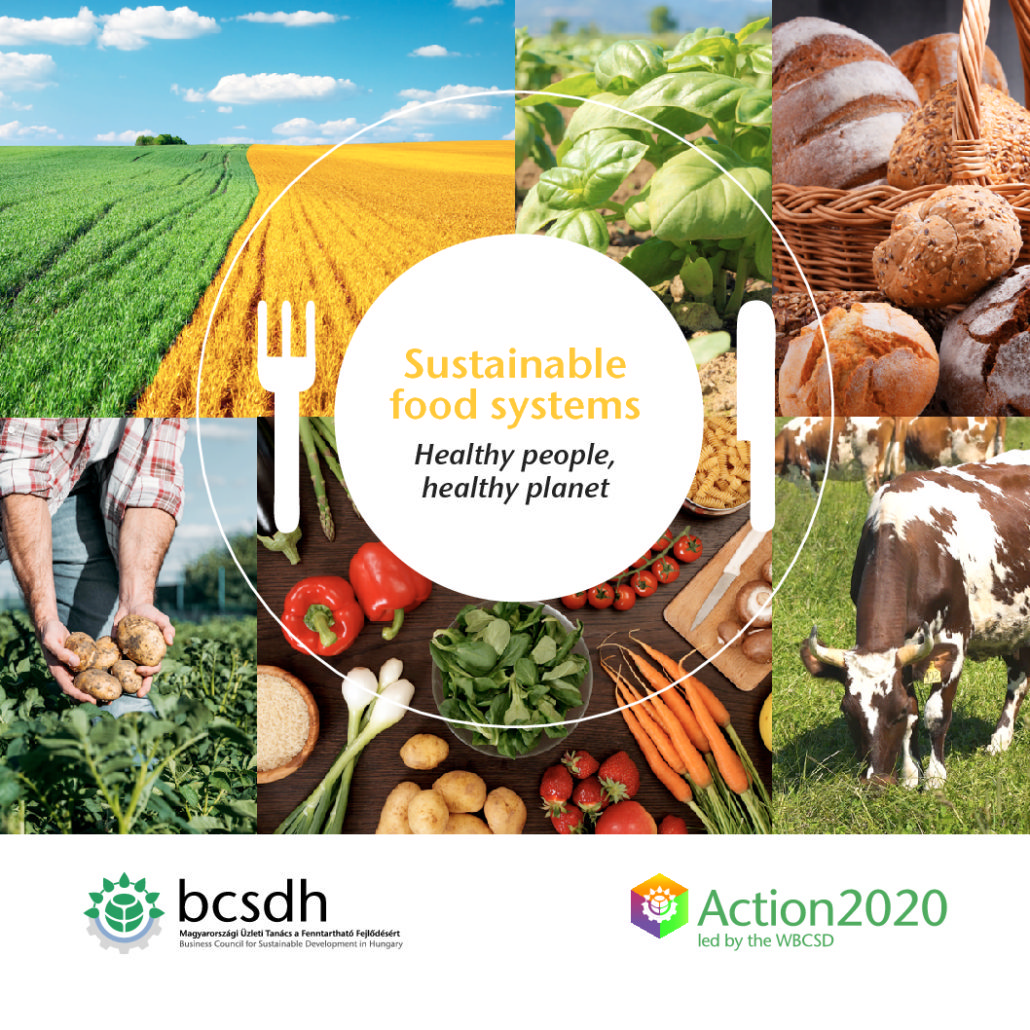Action 2020 Magyarország – Sustainable food systems
How can the world’s growing population be provided with food while we also mitigate climate change, preserve biodiversity, reduce social tension, and even become healthier?
The transformation of food systems must be managed by the business community. Companies in the agricultural and food sector must work together to continue to earn their license to operate. There is significant potential in developing more flexible, shorter supply chains, as well as in reducing and preventing food waste, and in developing farming techniques that go beyond minimum legal compliance and take account of the need to protect natural assets.
Climate change is having a negative impact on food security. The global shifting of species and the drastic loss of biodiversity that is occurring now and will continue into the middle of the twenty-first century as a result of climate change pose a great challenge to maintaining the sustainability of agricultural productivity and ecosystem services. Hungary is located on the border of crop production zones, so even relatively minor climatic changes can significantly impact agro-ecological conditions.
By drastically reducing food waste, less agricultural land will be needed to produce the same amount of food. Areas thus liberated will help with the conservation and restoration of biodiversity and ecosystem services. This in turn will help with climate adaptation and the creation of a healthier planet.
With food and nature as the focus, the following three recommendations were made in cooperation with the 60 experts and companies that joined the Action 2020 program, which is designed to help the business sector accomplish the related goals:
1. Establish shorter and more diverse supply chains to strengthen resilience
2. Develop an action plan to minimize food waste by increasing efficiency and raising awareness
3. Manage and invest into the rehabilitation and preservation of biodiversity
While many challenges exist due to the complexity of transforming food systems, promising, innovative technological developments and consumer trends indicate that there are many opportunities to accelerate the shift to a more sustainable way of living. Coronavirus has put food supply chains in a difficult position, drawing attention to how exposed open systems are, and to problems with global processes and the need to increase the protection of biodiversity. Is there a better time to make changes than now?

